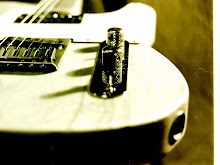
With his new release, Band of Joy, Robert Plant continues to avoid the obvious and the temptation to resurrect the Golden Godness of his Zeppelin days. Instead, he again explores more esoteric and, ultimately, satisfying music far from the well-worn path of the tired old nostalgia trip.
Early in the decade, he made some wonderful music with The Strange Sensation, bringing West African and Arabic nuances to rock riffs and vocals coupled with the occasional heartfelt homage to some of the folk songs that inspired him long before he and his mighty Zep bandmates trod the globe like wanton Vikings. He followed that with his Grammy-gobbling collaboration with Alison Krauss and T-Bone Burnett. This year’s Band of Joy release, borrowing its name (though no songs or members from one of Plant’s pre-Zep outfits), doesn’t quite measure up to the alchemical wonder of 2007’s Raising Sand collaboration, but it’s pretty darn close and is, in many ways, a step further in Plant’s always interesting, if often musically meandering, sojourn.
Band of Joy, Plant’s 10th solo LP (depending on how you count ’em) does visit some of the same places as Raising Sand (i.e., strong female vocal accompaniment, this time by Patty Griffin – in more of a supportive role than the outright duets featuring Krauss, but noteworthy nonetheless) and lots of haunting reverb and minor key chords and melodies. But it also strays into quite different areas. There’s the occasional hint of North African memories in the rhythms, and once or twice it even sounds like the band is flashing back to Page & Plant’s under-rated 1998 Walking Into Clarksdale release.
Great drums paired with masterful guitar work from respected Nashville session man and Raising Sand tour veteran Buddy Miller color the whole affair and ably bolster Plant’s mostly restrained vocal performance. There’s nothing too flamboyant in the guitar playing, but there are killer atmospherics that create moods perfectly in synch with the singer’s distinctive voice.
Like Raising Sand, this is another album that even people who don’t like Robert Plant’s singing may well like. It’s full of good, often catchy songs (mostly well-chosen covers of somewhat unfamiliar songs by the likes of Low, Los Lobos, Richard Thompson, Townes Van Zandt and others) that vary in pace and tone, yet fit together remarkably well. Despite the diverse composer credits, with superb musicianship and production (spare, open, airy) throughout, the album still seems “of a piece.” Dare I say it, it should have wide crossover appeal.
The range and quality of music on this album is exemplified by the fact that my three favorite songs (at least at this early date) are radically different from one another in style and tone. The opening track, Los Lobos’ “Angel Dance,” is a jaunty, upbeat drum and mandolin-driven song that marries Arabic rhythms and country folk melodies with urgent vocals and pulsating electric guitar. While “The Only Sound That Matters” is a mellower, plaintively romantic tune carried by Plant’s vocal and Darrell Scott’s impeccable pedal steel guitar playing. And, finally, my favorite track of all, “Monkey” is a darkly haunting tune with guitars evoking the more recent sound of The Church (that is, the under-appreciated Aussie band, not the crew from Rome). It’s one of two compositions on the album by the Minnesota slowcore band Low, and one on which both Griffin and Miller really shine.
Griffin, while no Alison Krauss on many levels, nevertheless adds to the haunting undercurrent that runs through much of this album. She manifests a faint, wispy, ghost-like presence on some songs that gets amplified to full-frontal haunt on other tracks. Krauss comes across as a naive innocent compared Griffin’s sultry earthiness.
While Band of Joy expands upon the unique fusion of country, folk, rock, blues and bluegrass that was mined and polished in the Krauss collaboration, the heavier country emphasis of that release is not wholly abandoned here. A few touches of the Nashville recording environs seep through: In the banjo meets field-holler blues of “Central Two-O-Nine” (the album’s only original composition); and the subtly humorous “Cindy, I’ll Mary You Someday,” on which Miller’s clean, reverbed electric guitar lurks eerily behind the banjo licks before ramping up to a rollicking end reminiscent of Zep’s “Gallows Pole.” Then there’s Townes Van Zandt’s “Harm’s Swift Way,” the most Raising Sand-reminiscent song on the record, with Griffin and Plant sharing the catchy “Oh me, Oh my, who’s gonna mark my time?” refrain.
Other notable cuts among the album’s dozen tracks include the dreamy “Silver Rider,” with understated, gradually building guitars reminiscent of some of the mellower latter-day U2 material. (Interestingly, the same might be said of the conclusion of “Harm’s Swift Way,” too.) Less surprisingly, there’s also the near-rockabilly of “You Can’t Buy My Love” and the quasi-doo-wop of “Falling in Love Again,” which finds Plant crooning like he hasn’t since his nostalgic turn with The Honeydrippers in the early ’80s.
Beyond the satisfying collection of songs itself, bonus points to Plant for designing the colorful and intriguing cover art himself. That’s a first for him, I believe. Further evidence that even at 62, he’s still very into exploring new avenues of creativity.
Plant and his current joyous band did a brief tour previewing the new album, mostly through the South, this past summer. I’m looking forward to the opportunity to see a much-anticipated, but yet-to-be announced, second leg tour stop in New England.
POSTSCRIPT: I was thinking about posting the official video to “Angel Dance” along wit this review, but it’s a mediocre video (despite the thematic nod to composers Los Lobos’ Latino heritage). Moreover, the sonically muted sound of YouTube really doesn’t do justice to the dynamic sound of the song as heard on CD. I hold out hope that, if commercially successful enough, maybe they’ll do a better video for “Monkey,” but I'll still listen to the CD for the sound.





No comments:
Post a Comment